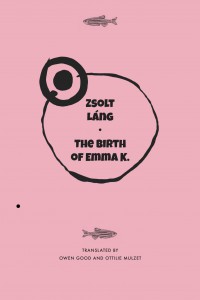Life After Kafka by Magdaléna Platzová, translated from the Czech by Alex Zucker, Bellevue Literary Press, 2024
Collage is perhaps the best term to describe Czech author Magdaléna Platzová’s Life after Kafka (Život po Kafkovi), recently translated into English by Alex Zucker. The cover of the book distinguishes the text as a novel, yet its two hundred and fifty pages are in effect an intricate labyrinth of letters, diaries, interviews, fictions, and the author’s own descriptions of working on the book, all blurring the boundary between fact and imagination. Bringing these myriad fragments together is a common thread: the life of Felice Bauer, one of Kafka’s many women. To Platzová, she remains a mystery: “Who really was Felice Bauer? Who was the woman a generation of Kafka fans knew only as a lover of meaty dishes, heavy furniture, and precisely set watches? . . . Little is known of her life after Kafka. She got married, had two children, and immigrated to America. Did she leave any traces behind?”
This erasure in the numerous works of Kafkology inspired Platzová to spend ten years writing about Bauer, and the resulting text finally appeared in Czech in 2022 (with the English edition coincidentally being published this year, the one hundredth anniversary of Kafka’s death). Kafka’s life—a short one of forty years—was shared by at least six very different women, mostly Jewish, verging from Austrian, Czech, German, to Polish: Hedwig Weiler, Felice Bauer, Grete Bloch, Julie Wohryzek, Milena Jesenská (the only non-Jewish exception), and Dora Diamant. Academia and popular culture have mostly retained Jesenská—herself a prolific journalist and writer—and Diamant as the main feminine figures in Kafka’s life, but Bauer, who hailed from Berlin, was Kafka’s first fiancée. They first met in Prague in 1912, and maintained a relationship until 1917, when Kafka broke their engagement for the second time. Grete Bloch, who was a friend of Bauer’s, met Kafka in 1913 and ended up playing a major role between the two. Kafka also wrote letters to Bloch, and she later intervened in the relationship between him and Bauer, at a time when the couple was drifting apart. Platzová centers her narrative around these two female figures, telling the story of how their lives intersected in the shared link to Kafka, and how his letters became a focal point of their complicated existences in exile, haunting them to their last days. READ MORE…



